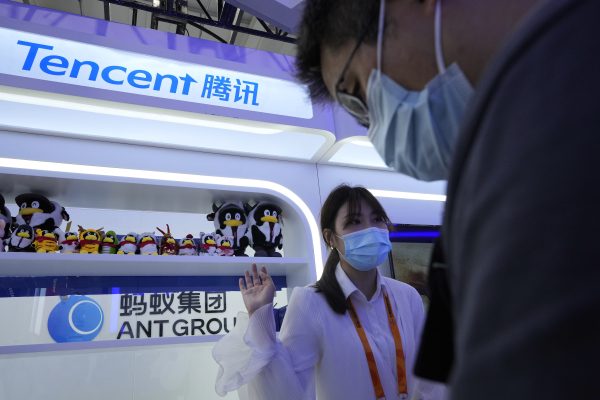In the cutthroat world of China’s tech industry, non-compete clauses and corporate surveillance are increasingly binding tech workers to their employers — sometimes with severe personal consequences.
As reported on April 3 by Japan’s Nikkei Asia, an alarming narrative unfolds through the story of a young tech worker going by the name “Emma,” whose ordeal exemplifies the dire situation faced by many like her across the nation.
Emma, a former employee of the Chinese e-commerce giant Pinduoduo, faced an ordeal so dark that it had her considering ending her own life. Overwhelmed by the burden of a lawsuit demanding she pay a massive financial penalty for allegedly violating a non-compete agreement, Emma’s plight sheds light on the draconian measures some companies are willing to enforce in order to retain talent.
Bringing down the hammer
The pressure on employees like Emma has escalated as leading companies like Tencent, ByteDance, and Pinduoduo tighten their grip on staff through “legally binding non-compete agreements.” Initially designed to protect trade secrets, these agreements are now being broadly applied — even to junior employees who pose minimal risk to the company’s intellectual property.

According to Pinduoduo, Emma had allegedly “breached a non-compete agreement” by accepting a position in a rival firm. But Emma maintains that her current job has no overlap with what her former role entailed, which involved her dealing with food vendors for the domestic market. Now she deals with toy manufacturers that target overseas markets, she clarified.
Success
You are now signed up for our newsletter
Success
Check your email to complete sign up
RELATED: China’s Tech Industry Seeing Largest Round of Layoffs as Beijing’s Sweeping Crackdown Continues
The predicament left her mentally drained. “Could my farmer parents survive if they lost their only daughter?” the Nikkei report quotes her as saying.
Shen Jianfeng, director of the Research Center for Labor Law and Social Security Law at the Central University of Finance and Economics in Beijing, highlights the misuse of these contracts. “In China, companies have been exploiting noncompete agreements by significantly expanding their reach, leading to their misuse,” he told Nikkei.
“While it may appear to be a mutual agreement, refusing to sign such agreements may result in job loss,” Shen added. “There is a significant power imbalance between employers and employees. A lot of employees may not comprehend the potential consequences associated with such agreements when they sign them.”
Far-reaching ethical implications
But Emma’s case is not isolated. Pinduoduo, known for its stringent work culture, imposed harsh non-compete terms that continued to haunt Emma even after her resignation from a grueling position that had pushed her to physical and mental exhaustion. The company’s aggressive legal pursuit — based on secretly-filmed videos of Emma entering her new workplace — signals a disturbing trend of surveillance used to enforce these clauses.

This practice is also widespread, with leading tech companies frequently monitoring former employees. The evidence gathered often includes video footage, which despite objections about its legality, is typically admitted in Chinese courts.
As competition in the tech sector remains fierce, companies have also resorted to innovative yet intrusive methods to gather proof of breaches. These include sending undercover employees to rival firms under the pretense of interviewing for new jobs, or capturing their movements through delivery scams and health records — both of which violate the employees’ right to privacy.
- Taiwan’s Chipmakers Pivot Towards Japan Amid Global Decoupling Efforts From Chinese Mainland
- US Adds More Chinese Military-linked Enterprises to ‘Section 1260H’ Entity List, Including Semiconductor and AI Firms
- Production Delays, Disarray in Boeing Factory Prior to Door Plug Near Tragedy, WSJ Reports
Legal experts note that while non-compete agreements are a global phenomenon, the extent and enforcement in China are particularly harsh. “There is a significant power imbalance between employers and employees. A lot of employees may not comprehend the potential consequences associated with such agreements when they sign them,” Shen remarked, emphasizing the often involuntary nature of these agreements.
Opening the door for harassment
“Non-compete agreements are the best implemented and enforced part of China’s labor laws,” writes Mary Gallagher, a professor of political science at the University of Michigan, and former director of Chinese studies at the Lieberthal-Rogel Center. “They restrict competition and allow the biggest companies to threaten and harass former employees,” she adds.
These agreements not only trap workers in unfavorable employment conditions but also stifle innovation by preventing skilled individuals from moving freely within the tech industry. In response to increasing scrutiny, some former employees have also begun to challenge these restrictive practices publicly.
A notable incident involved 11 former Pinduoduo employees who, through a collective social media outcry, accused the company of abusing noncompete agreements to the detriment of workers’ rights and livelihoods.
“There is significant evidence indicating that [some of the former employees] deliberately produced false information with the intent to mislead others,” a Pinduoduo spokesperson said in response to the workers’ findings. “Such actions bring into question the true motivations behind these allegations.”














